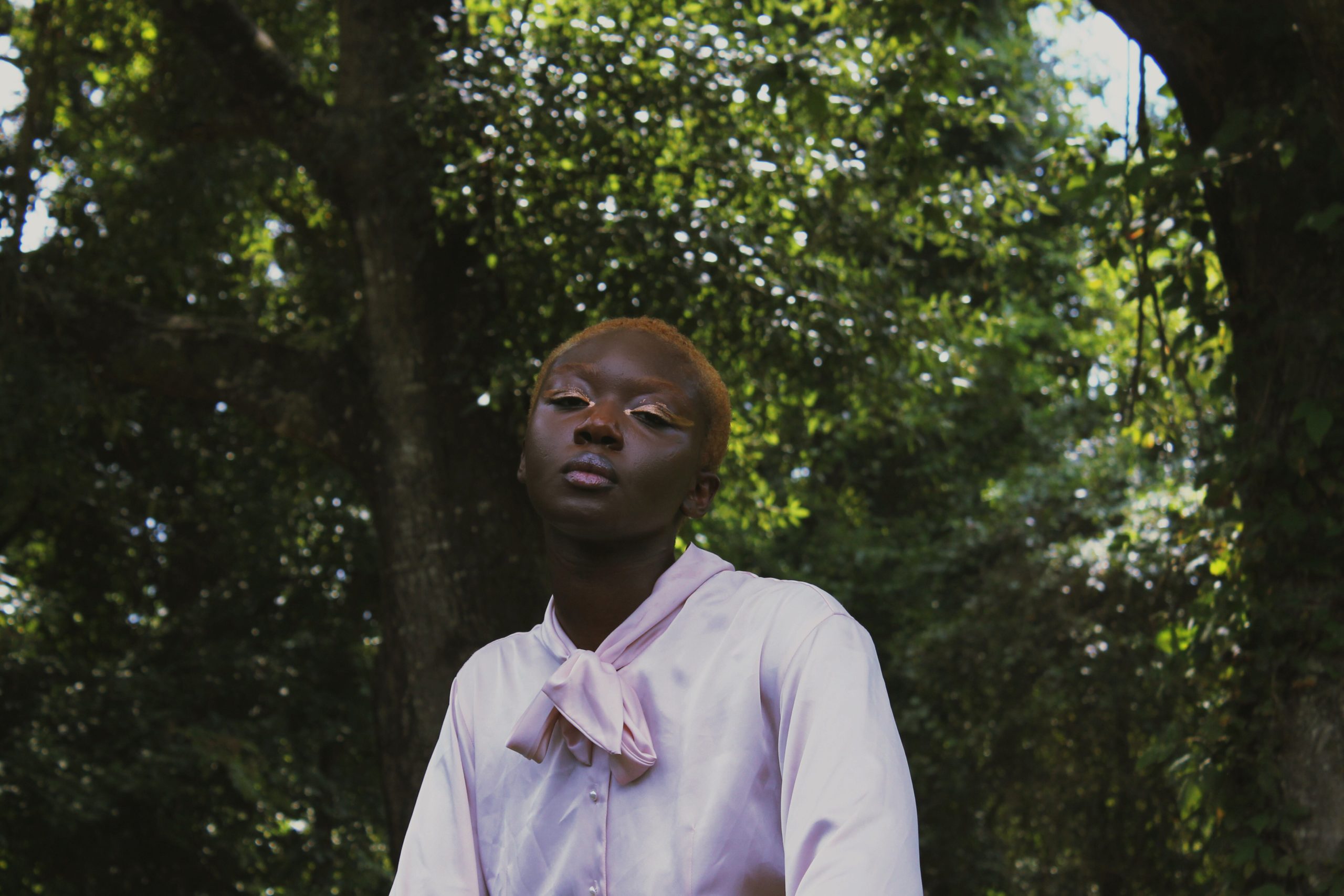
Photography courtesy of @3tsitra
Remember Oluwatoyin Salau by putting Black women and LGBTQI+ people at the heart of the movement
The death of the young Black Lives Matter protestor serves as a painful reminder that Black liberation won’t happen if the most marginalised voices are forgotten.
Sarah Nugdalla
17 Jun 2020
Photography courtesy of @3tsitra
As the world feels the vibrations of the fight for racial justice and the calls for the end of white supremacy under the hashtag #BlackLivesMatter, Black women, queer and trans folks are forming hashtags to counter the erasure and violence within their communities. The events surrounding the recent deaths of Black women and trans people have revealed the cracks within the movement, calling for a need to reexamine the harmful practices of selective pro-Blackness in the fight for liberation.
Oluwatoyin Salau, a 19-year-old Black Lives Matter protestor, was found dead on 15 June in Tallahassee, Florida, alongside 75-year-old Victoria Sims, after being reported missing following a Twitter thread where she detailed being sexually assaulted. Aaron Glee Jr., a 49-year-old man, has been charged with murder and kidnapping in connection with their deaths. Following the news, Twitter threads mourned her loss by saluting Toyin’s activism – a young woman who consistently put her life on the line for the Black collective and fiercely centred queer and trans lives in her fight for justice.
“Who cares for little Black girls, Black teens, Black women?” asked Gabrielle Union in a tribute post on Instagram. “Toyin deserved so much more. She fought for so much more for all of us. I can’t shake it. I am her and she is me.” Across social media, Black women expressed similar feelings of grief and outrage at her death under the hashtag #JusticeForToyin as they spoke out about their exhaustion from fighting against anti-Blackness while being persecuted from all directions. In response to Black men’s silence around Toyin’s assault and murder, many of them vowed to disengage from associating with Black cishet men who have routinely evaded the responsibility to show up for others in the community. The conversation surrounding Toyin’s death also noted the neglect of darker skin Black women in particular, stating that their lives have persistently been dehumanised and treated as disposable.
Few interactions are safe for Black women. We exist in a continuous state of survival, simultaneously harbouring trauma and hypervigilance from the violence of both anti-Blackness and patriarchy. The reality of Black women, queer and trans folks is that if white supremacy were to fall tomorrow, their safety remains threatened.
“The positioning of Breonna’s murder as an afterthought speaks to how Black women’s deaths rarely compel the masses to action”
The senseless killing of Breonna Taylor, a Black woman shot eight times by police in her home on 13 March in Louisville, Kentucky only garnered attention following the death of George Floyd. Killed months before the protests, the positioning of Breonna’s murder as an afterthought speaks to how Black women’s deaths rarely compel the masses to action. Similarly, Tony McDade, a Black trans man shot and killed by a white police officer in Florida on 27 May. Like his counterparts, Tony’s life was lost to police brutality, but despite us being in the midst of global Black Lives Matter protests, his death initially failed to garner public outrage. Without the rallying of activists online and on the ground fighting to bring Tony’s death to public view, his death and his transness would have gone unrecognised, leaving us to ask the disturbing question of whether some Black lives matter more than others.
Ultimately, black trans people had had to mobilise independently since the Black Lives Matter protests began, speaking to the erasure of trans lives in the media and within the larger movement. Last weekend, the deaths of two Black trans women, Riah Milton and Dominique Fells sparked the Black Trans Rally in New York and across other US cities. Driven by Black trans women, the rally created a space to mourn trans lives and celebrate their resilience by chanting, “I believe in your power. I believe in our power. I believe in black trans power.”
The experiences of Black marginalised groups are often dismissed as a distraction from the wider issue of anti-Blackness. But without an inclusive racial justice agenda, the gender-specific ways in which Black lives experience racism are lost. That includes, but is not limited to, Black poor lives, Black trans lives, Black queer lives, Black sex workers, Black disabled lives. Until there is a sincere dedication to unlearning investments in white patriarchy, we have no Black liberation movement. The battle for freedom can only be won through approaches that take into account the many nuances of Black life.
“Without an inclusive racial justice agenda, the gender-specific ways in which Black lives experience racism are lost”
The movement must do better in recognising that Black marginalised people need to be able to exist loudly and to be mourned with respect to their identities. Our freedom is dependent on an understanding that the othering of particular Black people is in itself a function of white supremacy. Blackness has no shelter from the violence of racism so the work is on us to better protect our humanity.
Though we will mourn Toyin, Riah, Dominique and so many others, the deaths of Black people should not be reduced to teachable moments. It should not take our death to fathom the threat to our lives. More importantly, Black women’s death should not simply be framed as a “wake up call” for why Black women must be protected – it should extend to an interrogation of what systems Black women, queer and trans folk need to be protected from. We are tired, we are angry, but we are here and we demand freedom.







